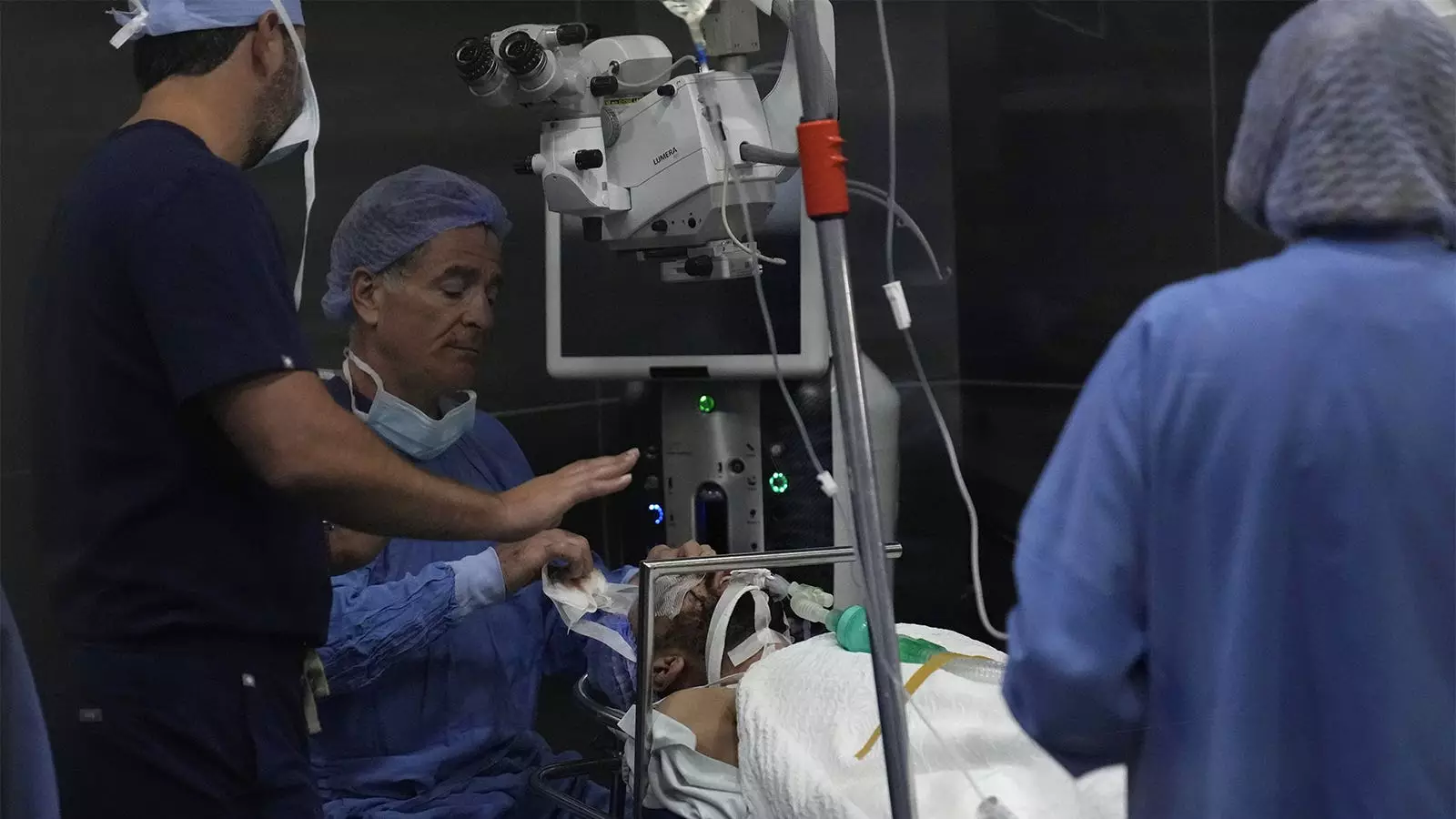In recent events that have shaken the heart of Lebanon, the tragedy of eye injuries resulting from explosive devices used by the Hezbollah militant group highlights the grim consequences of ongoing conflict. Dr. Elias Jaradeh, an ophthalmologist, has been at the forefront of this crisis, working tirelessly in the face of overwhelming challenges. His experience offers a poignant insight into human suffering amid war and the unrelenting burden on medical professionals.
In the aftermath of explosive attacks in Beirut, hospitals are inundated with victims bearing traumatic injuries, particularly to the eyes. Dr. Jaradeh recounts a week of relentless work, battling fatigue as he performed numerous surgeries, sometimes operating with less than two hours of sleep. The sheer number of patients who arrived at the hospital needing urgent care was staggering. Young men, women, and children comprised a significant portion of those injured. Many victims met their injuries while looking down at their devices, which detonated unexpectedly.
The explosions resulted in at least 39 deaths and approximately 3,000 injuries. It’s critical to note that while the assaults seemingly targeted Hezbollah fighters, numerous civilians bore the brunt of violence, underscoring the indiscriminate nature of such acts in warfare. The emotional toll on doctors, particularly in specialized fields such as ophthalmology, has been extensive. Dr. Jaradeh’s recounting tugged at the heartstrings, illustrating how difficult it is to remain resolute in the operating room while witnessing such profound suffering.
Lebanon’s history is rife with unrest and conflict, and yet, the current wave of injuries presents a new and alarming scenario for healthcare providers. Medical professionals like Dr. Jaradeh, who have dealt with the consequences of war, have found themselves grappling with a situation unlike any they have previously experienced. The volume of patients requiring treatment for eye injuries has outstripped anything they had prepared for.
Dr. Jaradeh described his operating room filled with cases possessing severe ocular trauma, with some featuring foreign metallic and plastic shrapnel embedded in their eyes. These insights reveal not only the physical but also the psychological scars borne by both victims and healthcare workers. The sight of young, hopeful individuals suffering such devastating injuries is a reminder of the fragility of life amid violent upheaval.
What makes Dr. Jaradeh’s story striking is his candid reflection on the emotional turmoil he experiences while providing medical care during times of crisis. He finds it almost impossible to set aside his feelings, a challenge that speaks volumes about the human side of medicine. Training can prepare doctors for many scenarios, but nothing can fully equip them for the weight of witnessing relentless suffering on such a massive scale.
Dr. Jaradeh’s comments about the 48 hours he viewed the aftermath of the Beirut port explosion starkly contrast with the current crisis. The immediacy of the needs presented now keeps him in a state of persistent distress. The inability to distance oneself from the emotional pain of patients is a common struggle faced by healthcare workers in conflict zones, further highlighting the human aspect often overlooked in discussions about war and trauma.
The ongoing conflict produces repercussions that extend far beyond immediate casualties. It fosters a cycle of despair and disillusionment not just for the victims but for everyone in the community. Each injured person represents a family affected, a community burdened by loss and suffering. The reality of war means that behind each patient is a story of disrupted lives and shattered expectations.
Dr. Jaradeh’s experience shines a light on the need for both immediate humanitarian aid and broader considerations for long-term recovery processes. Every injury sustained during such attacks contributes to a growing health crisis in Lebanese society, one that will require attention not only for physical rehabilitation but also for psychological healing.
The lessons from this ongoing tragedy should resonate far beyond Lebanon, as they exemplify the human cost of conflict and the toll it takes on individuals, families, and entire communities. As Dr. Jaradeh continues to battle fatigue in operating rooms across his country, the need for compassion and global awareness remains paramount. Without collective action and empathy, the cycle of violence and trauma will persist, leaving indelible marks on both the land and its people.


Leave a Reply